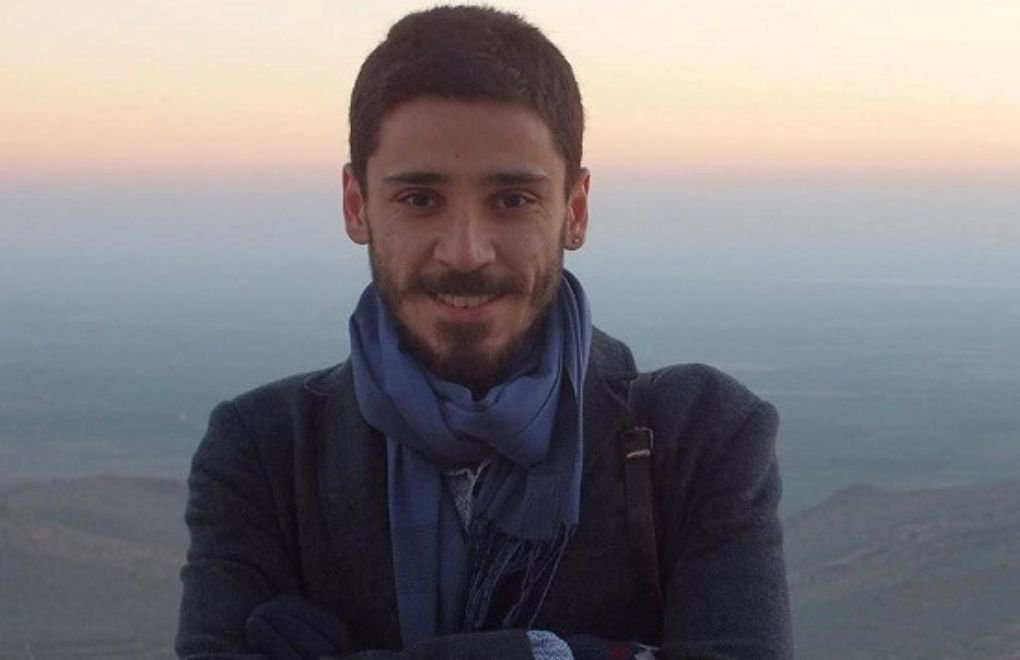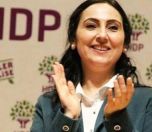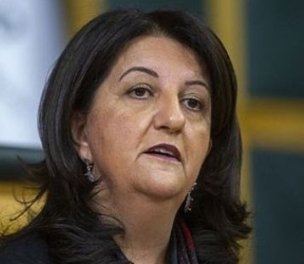Click to read the article in Turkish
Arrested as part of the investigation into the 2014 Kobanê protests, PhD student Cihan Erdal has written a letter from the Sincan No.2 Type-F Prison in Ankara.
During a visit to Turkey, he was detained on September 25 and remanded in custody on October 2 with 17 others.
A new investigation has been launched into the deadly protests in the Kurdish-majority regions with dozens of people, mostly Peoples' Democratic Party (HDP) members, sent behind bars.
Some 108 people have been charged with 25 different offenses, including "managing a terrorist organization" and "attempted overthrow."
Erdal briefly wrote the following:
I am a Ph.D. candidate at the Department of Sociology and Anthropology at Carleton University in Ottawa, Canada. I have been working as an assistant lecturer and research assistant at Carleton University since 2017. As a young Turkish academic at Carleton University, where I have been studying and working on a scholarship since 2017, I have tried to successfully represent the society and culture I grew up in. But you may have heard my name with the injustice we have experienced recently. I was detained on September 25, 2020, in Istanbul, where I came to visit my family, to see my nephew's birth and to continue the field study for my doctoral thesis. I have been held in Ankara Sincan Prison as a political hostage for 5 months as part of the case related to the Kobani protests that took place on October 6-8, 2014. This situation creates the risk that I may lose my doctoral research, which I have been carrying out with a great effort for four years, and my scholarship. With completely unfounded and baseless allegations and political motives, not only my individual freedom and right to education and work but also universal norms and values of law are being usurped. The European Court of Human Rights Grand Chamber decision on Selahattin Demirtaş dates December 22, 2020, very certainly indicates that there is no concrete evidence whatsoever that can convince an objective observer and justify our arrest. Although it's tried to be presented as a new case, the ECtHR Grand Chamber decision regarding Mr. Demirtaş required the end of our unfair and arbitrary arrest without any necessity of a new application. Aside from the peculiarity of my trial because of a meeting that I did not attend and an invitation I did not share, as a person that objected to preachers of violence in every division of life without ifs or buts, I have to say that I find it disgraceful for law and justice that I am subjected to terrifying accusations regarding a painful incident of violence. The fact that I shared a link to a newspaper that reported the painful cry of a Kurdish father who lost his soldier son in 2015 and my one-sentence comment of "This war is not our war" being presented as "evidence" to "being a supporter of a terrorist organization" is not only a misdeed against me and my loved ones but also against my country's future. I have never been in a position to defend the PKK's violence or the state violence against citizens. I have defended that words, talking, dialogue, negotiations are our basic needs for our century to create a world that is really different from the 20th century, which was an era of violence. When I was a member of the Green Left Party and the HDP Central Executive Committee, I believed in the potential of the policy of 'becoming a party of Turkey' to end violence radically and radically. An increase in the number of citizens that hear, talk to and understand one another could have changed the country's fate in favor of the poor, those who are considered surplus, and those who are ignored. In the last four years, when I moved away from active politics and focused on my academic studies in Canada, I did not leave the language of nonviolence, peace and love. The logic-defying charges against me with an indictment that was prepared seven years later, especially the allegation that 'I acted upon instructions' is extremely serious spiritual violence. In the past November, we heard this sentence from Minister of Justice Abdülhamit Gül: 'Let justice be served, though the world perishes. This is what we expect from judges, members of the judiciary.' It is remarkable that this ancient maxim attributed to Ferdinand I, the successor of Charles V, is recalled by authorities today. In fact, our humble expectation is neither the doomsday to come and the perishment of the world; it is the implementation of the ECtHR and Constitutional Court verdicts, which is a constitutional obligation. Hope to see you on free days. |
About Kobanê protests
In September 2014, ISIS, which controlled a large territory in Syria at the time, launched an offensive to Kobanê, a Kurdish town in northern Syria, near the country's border with Turkey. In late September, a group of people went to Suruç, a town neigboring Kobanê in the predominantly Kurdish city of Urfa, and attempted to cross the border. Police prevented them, using tear gas and rubber bullets. Pictures allegedly showing ISIS militia crossing into Syria were published on the same days. Also, President Recep Tayyip Erdoğan made statements indicating that they equated the PKK with ISIS. While the wounded coming from Kobanê were kept waiting on the border, the wounded from ISIS were treated at hospitals. Several news reports were reported in the press, saying "Kobanê fell." These news reports were denied every time. After the HDP made a call to take to the streets against a possible massacre in Kobanê, thousands of people protested in Kurdish-majority provinces as well as Ankara and İstanbul. While left parties also supported these protests, deaths also occurred with the onset of police violence. Street conflicts ensued. 42 people lost their lives from October 6 to 12, 2014. According to a report by the Human Rights Association (İHD), 46 people died, 682 people were wounded and 323 people were arrested in the protests held between September 7 and 12, 2014. As reported by the AA, 31 people lost their lives, 221 citizens and 139 police officers were wounded. Here are some of bianet's articles covering the battle of Kobanê and the protests in Turkey: CLICK - Politicians, NGOs Keep Watch on the Border with Kobanê CLICK - Writers to Visit Border with Kobanê CLICK - 'The Government Doesn't Partner Up on Humanitarian Aids' CLICK - Hard to Be Journalist in Kobane, Police Violence Resumes CLICK - Scores Cross Border to Kobane For Solidarity CLICK - University Student Dies in Kobanê CLICK - Nejat Ağırnaslı, Sociologist, Dies in Kobanê CLICK - Government Didn't Help Refugees Coming from Kobanê CLICK - At least 815 People Died in Kobanê CLICK - 'Privacy' of An ISIS Fighter Vs. Right to Information CLICK - Detained Kobanê People Attacked With Tear Gas CLICK - Petition Urges Humanitarian Corridor to Kobanê CLICK - Twelve Childen Died in Kobane Protests CLICK - The Aftermath of Kobane in Photos |
(EMK/VK)





_510.jpg)
-132.jpg)


_510sa.jpg)